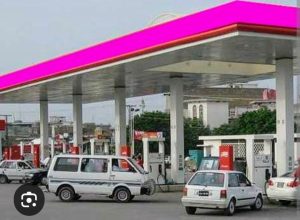

By Adewale Sanyaolu.

There is renewed hope for a drop in petrol prices as the Federal Government has announced the continuation of the Naira-for-Crude oil exchange deal.
The Ministry of Finance made this known in a statement issued after a meeting of the technical sub-committee on the initiative, chaired by Wale Edun, the Minister of Finance and Coordinating Minister of the Economy.
Attendees include key stakeholders such as FIRS Chairman, Dr. Zacch Adedeji; NNPC Ltd’s Chief Financial Officer, Mr. Dapo Segun; officials from NNPC Refineries and Trading; representatives from the Dangote Refinery; the NUPRC, NMDPRA, CBN, NPA, Afreximbank, and others.
The Ministry clarified that the policy is a long-term strategy, not a temporary measure, aimed at boosting local refining capacity, reducing demand for foreign exchange, and strengthening the naira.
“The initiative remains in effect and will continue as long as it serves public interest and national economic goals,” the Ministry said.
It stated that the policy is designed to limit dollar demand in local petroleum transactions, attract investment into domestic refining, and promote the naira as a viable currency for energy trade.
Although the committee acknowledged that challenges exist, it assured that these are being addressed through collaboration among relevant agencies.
Our correspondent reports that during the temporary suspension of the deal, petrol prices rose from N860 to N930 per litre, leading to increased fuel imports by marketers.
Reacting to the resumption of the policy, Mr. Ichie Idoko, Publicity Secretary of the Crude Oil Refiners Association of Nigeria (CORAN), welcomed the move, especially in light of global trade tensions.
He said that the policy had earlier helped bring down fuel prices and fostered value addition to Nigeria’s crude resources.
“The return of the Naira-for-Crude deal will help bring prices down again and move us closer to self-sufficiency in petroleum products,” he said.
The first phase of the six-month deal between the Federal Government, NNPC Ltd., and Dangote Refinery ended on March 31, 2025.
The refinery had since halted the sale of refined products in naira due to the deal’s expiration.
According to a recent report by S&P Global, the Dangote Refinery processed about 400,000 barrels per day in 2025, with 35% of that volume, around 140,000 barrels per dayimported.
The continuation of the naira-based deal is expected to reduce imports and conserve Nigeria’s foreign reserves.
Officials reiterated that the initiative aligns with Nigeria’s long-term goals, including reducing reliance on foreign reserves, supporting local industry, and stabilizing fuel prices.
The Repoters recalls that the Naira-for-Crude policy was initially implemented on October 1, 2024, when NNPC began supplying 385,000 barrels of crude daily to the Dangote Refinery, with payment made in naira.
In return, the refinery supplied an equivalent value of refined petrol and diesel to the domestic market, also paid for in naira.
Confirming the continuation of the arrangement, Mr. Dare Adekanmbi, Special Adviser on Media to the FIRS Chairman, said the sub-committee was working tirelessly to ensure smooth implementation for the benefit of Nigerians.
Some motorists, who spoke with The Reporters’ correspondent in Lokoja on Thursday expressed delight over the development.
They however stressed the need for effective and sincere implementation of the policy to enable Nigerian masses derive maximum benefit from it.
Edited by Dada Ahmed.


